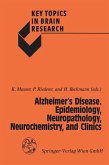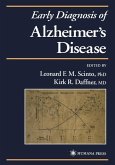Alzheimer's disease (AD) is not only affecting increasingly large numbers of elderly and even middle-aged people in a worldwide epidemic, but also appears to be under-diagnosed and under-treated. In Alzheimer's Disease: A Physician's Guide to Practical Management, clinicians, scientists, and opinion leaders from all over the world provide a concise practical guide to the evaluation, assessment, and treatment of individuals with probable AD, illuminating the basic biology underlying the disease and outlining the many emerging therapeutic as well as promising preventive directions. On the clinical side, the authors focus on such issues as early changes and preclinical conditions-including mild cognitive impairment and predementia AD-how the patient presents, the state-of-the-art therapy, and the recent neuropsychiatric aspects of AD. Late-life issues are discussed, as well as the treatment of frequent comorbidities and the often-neglected dental care. On the practical side, guidance is offered to medical providers and caregivers on the deep feelings of isolation, loneliness, and despair that the illness can create in caregivers, and on how to overcome the consequent breakdown in communication with the patient. The authors also provide a comprehensible account of our current understanding of AD, as well as intriguing future strategies for its prevention and treatment, including stem cell therapy. Comprehensive and practical, Alzheimer's Disease: A Physician's Guide to Practical Management not only offers physicians, caregivers, and all interested lay people a readable future-oriented overview of the disease, but also bridges the gap between basic science and the everyday challenges of treating and managing AD patients.
Dieser Download kann aus rechtlichen Gründen nur mit Rechnungsadresse in A, B, BG, CY, CZ, D, DK, EW, E, FIN, F, GR, HR, H, IRL, I, LT, L, LR, M, NL, PL, P, R, S, SLO, SK ausgeliefert werden.









